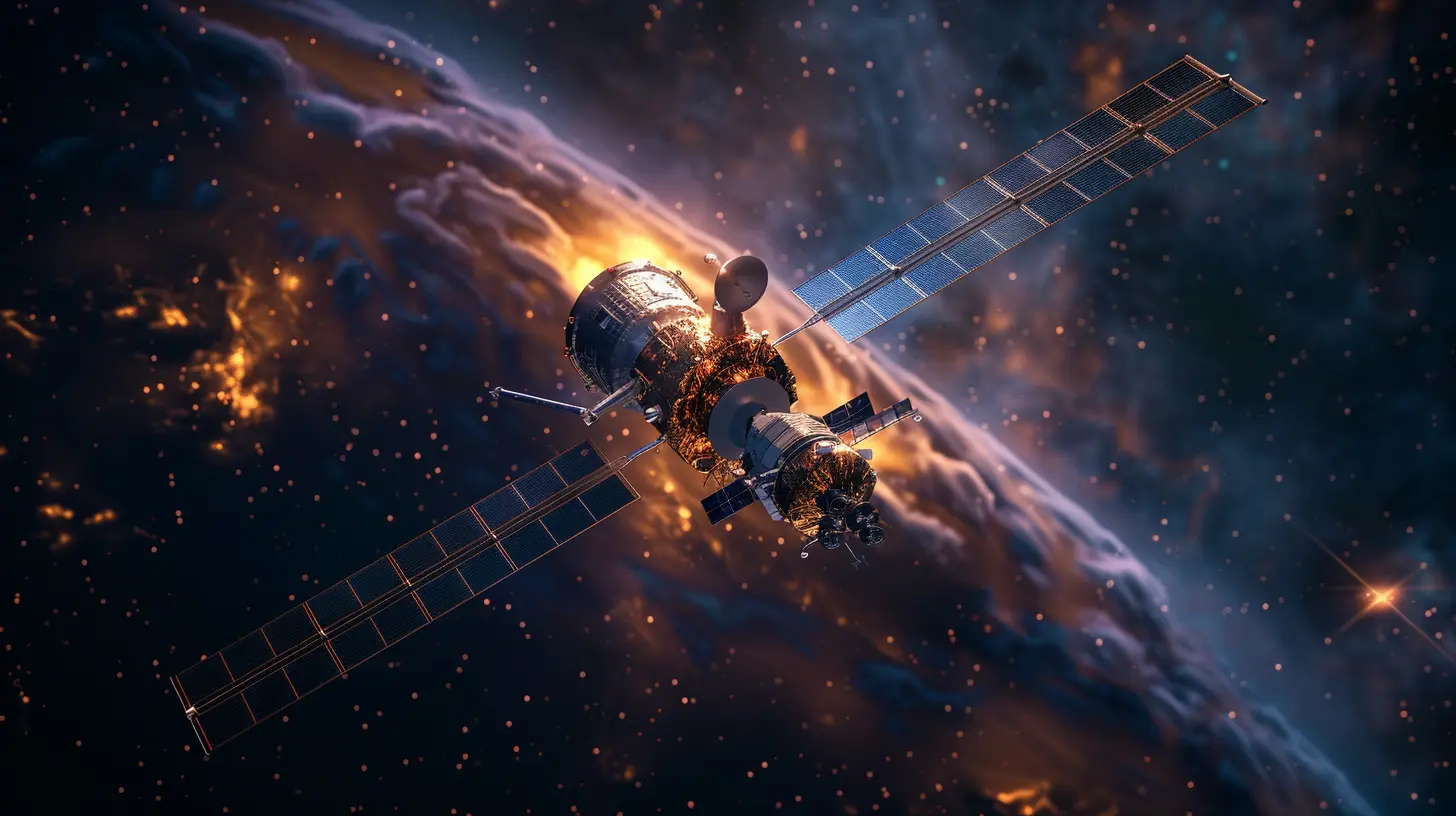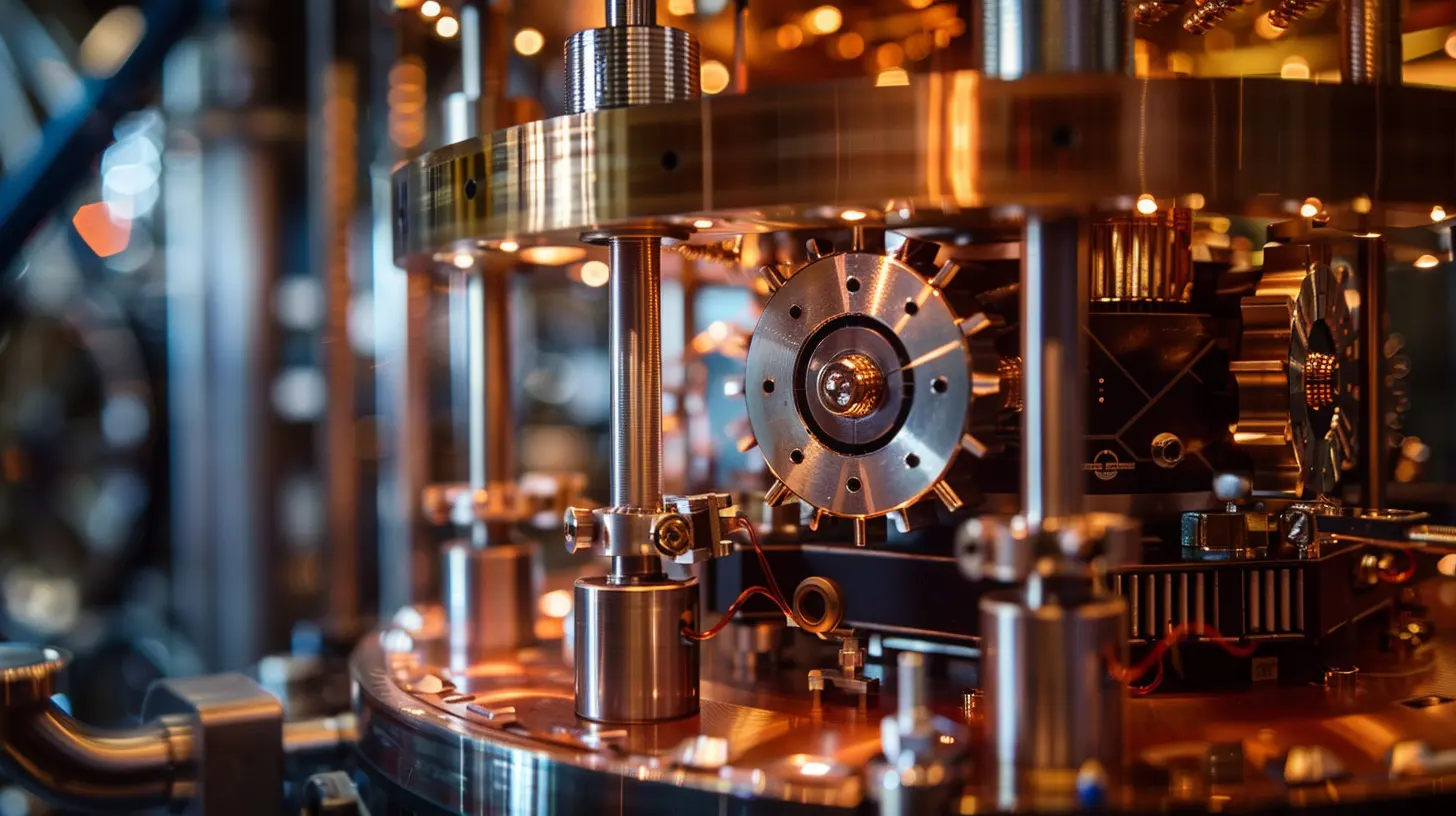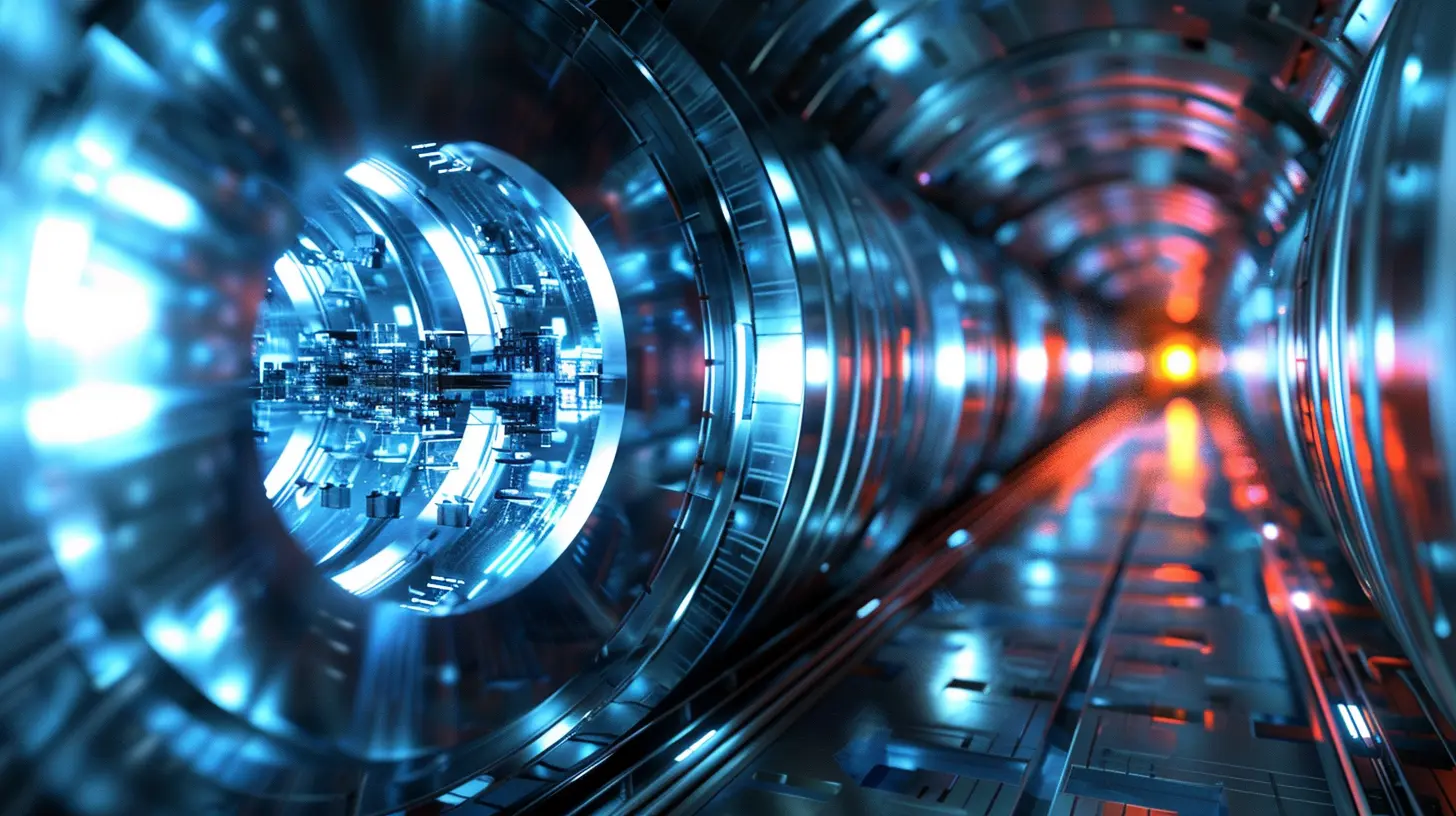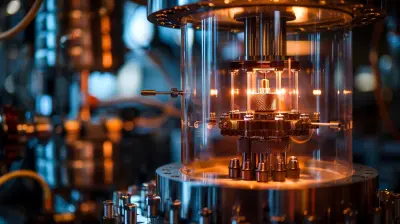Quantum Computing and Space Exploration: Unlocking New Possibilities
27 September 2025
Ever tried solving a Rubik's cube blindfolded while riding a unicycle? That’s kind of what traditional computers are doing when they try to crack some of the biggest problems in space exploration. Now, enter quantum computing—a brainiac wizard that doesn’t follow the normal rules, plays with probabilities, and somehow makes the impossible seem...well, way less impossible.
Today, we’re going to dive into how this baffling new tech might just be the key to taking our space game from "we're still sending rovers" to "book me a room on Mars, please."

The Chronicles of Computing: Classical vs Quantum
Alright, let’s kick things off with a quick refresher. Classical computers, like the one you’re reading this on, are really fast and smart calculators. They crunch numbers in binary—those cute little 1s and 0s. Easy, predictable, and efficient.But here's the catch: space problems are not always simple math. They're more like those "2 AM can't sleep" existential questions—massive, messy, and with too many variables. That’s where quantum computers stroll in, rocking their qubits instead of bits.
Qubits? Yep. These things operate not just in 1 or 0, but in superpositions of both. Imagine flipping a coin that lands on heads, tails, and somehow… on its edge, ALL at once. Welcome to the weird world of quantum mechanics.
Why Space Exploration Needs a Smarter Brain
Space is truly the final frontier, but honestly, our computers are still working with frontier-era brains. When you're juggling crazy trajectories, alien environments, radiation storms, and about a bajillion variables kind of like a caffeinated octopus—your average laptop just won’t cut it.Let’s look at a few ways quantum computing could help us outsmart the universe.
1. Orbit Optimization: More Than Just Playing Celestial Billiards
Plotting a spacecraft’s route isn’t like setting your GPS to "Mars, via Starbucks." It’s an insanely complex equation filled with gravitational pulls, energy conservation, and planetary alignments.Classical computers handle this with brute force—they calculate every possible path and see which one works best. Sounds effective, but it’s a time and energy sucker.
Quantum computers? They look at all the possibilities... at once. No kidding. They can explore multiple potential orbits simultaneously and find the most efficient one in a flash. Less fuel, less time, fewer headaches.
So yeah, quantum computing is basically Uber for spaceships but with fewer app crashes.
2. Handling Big Data From Deep Space
You know the kind of data NASA pulls in? We're talking petabytes—millions of gigabytes—from telescopes, satellites, and rovers. It's like trying to drink from a fire hose... while it's raining... underwater.Sorting through all that data in real time is like asking a sloth to type out Shakespeare.
Quantum computers, however, are natural-born pattern detectors. They're built to identify trends, anomalies, and insights in massive data streams. Imagine them scanning through entire galaxies of data looking for a single sign of alien life, and doing it faster than you can say "E.T. phone home."
3. Improving Material Science: Building Stronger, Smarter Spacecraft
Space is unforgiving. One wrong move, and your billion-dollar spacecraft could be toast—literally.We need materials that are stronger than steel, lighter than feathers, and smarter than your smartest friend. Quantum computing speeds up the discovery of new materials by simulating atomic structures and chemical reactions with brain-melting precision.
Instead of spending decades testing new alloys, we let quantum simulations do the heavy lifting. It's like cooking with AI instead of experimenting in the kitchen for years. Burnt lasagna? Not in space, thank you.
4. Handling Radiation Like a Pro
One of the sneaky space villains? Cosmic radiation. It's like nature’s spam email—you didn’t ask for it, you don’t want it, and it can seriously mess things up.Quantum simulations can help researchers figure out how radiation affects not just structures, but the electronics and even biological systems aboard a spacecraft. That includes astronauts’ DNA. No one wants to come back from a mission looking like the Hulk.
With quantum models, we can predict, simulate, and mitigate radiation effects far better than with today’s systems. It’s like having a weather forecast for the cosmic storm, minus the umbrellas.
5. AI on Steroids: Quantum Machine Learning
Artificial Intelligence is already helping with space exploration—like analyzing images from Mars or navigating autonomous spacecraft. But when AI meets quantum computing, it’s game on.Quantum Machine Learning (QML) takes traditional AI and pours rocket fuel on it. With QML, we can train models faster, digest complex datasets better, and make faster predictions—whether it’s identifying habitable exoplanets or optimizing a Mars rover’s path.
Think of it as Iron Man’s J.A.R.V.I.S—only a little less sassy (for now).
6. Cryptography and Space Communication: Keeping Secrets Safe in the Void
Imagine sending top-secret coordinates across billions of miles only to have someone (or something?) intercept them? Yeah. Not ideal.Quantum computing isn't just good for building things—it’s also great at breaking things. Like encryption. But flip that around, and we get quantum encryption, aka quantum key distribution (QKD)—a way to communicate so securely that even if aliens tried to eavesdrop, they’d be left scratching their... tentacles?
Super secure quantum communications could protect everything from mission data to deep space video calls. Finally, a way to tell your space cat you love them, without the fear of interstellar hacking.
7. Quantum GPS for Deep Space: Because Google Maps Won’t Cut It
Regular GPS satellites only work around Earth. You get beyond that, and you're flying blind. Deep space navigation is like trying to find your house in pitch-black darkness—with blackout sunglasses.Enter quantum clocks and quantum sensors. These devices have crazy precision, capable of measuring time and motion so accurately they could help spacecraft chart their course through deep space without needing constant pings from Earth.
It’s intergalactic independence, baby!
8. Simulation of Alien Life Conditions
Say we find a potentially habitable exoplanet—ooooooh. Now what?Before loading up humans like sardines into rockets, we need to simulate what life would be like there. Toxic atmosphere? High gravity? Rain made of molten metal?
Guess what? Quantum computers can simulate complex biological and environmental systems, giving us a glimpse into the future—we can model human biology under exoplanet conditions before anyone sets foot on it.
No surprise allergic reactions to alien pollen, thank you very much.
9. Solving the Mystery of the Universe: Because Why Not?
Let’s go big. Quantum computers, with their ability to process data in fundamentally different ways, may help us answer the biggest cosmic questions.What is dark matter? What happened before the Big Bang? Are we… alone?
We’re talking next-level theoretical physics, and quantum computing might just be the magnifying glass we need to peer into the deepest corners of cosmic truth.
You might not get a satisfying answer (looking at you, quantum uncertainty), but hey, it’s better than squinting with 20th-century tech.
But Wait, There's a Catch (Of Course)
Quantum computers aren’t exactly plug-and-play yet. They’re like that super-talented kid in school who’s also wildly unpredictable and prone to spontaneous meltdowns.They require extreme cooling (we’re talking near absolute zero), are sensitive to outside interference, and the current models are still relatively limited. But the progress is real—and fast.
So, while we’re not building a warp drive with a quantum MacBook just yet, we’re getting there.
Space + Quantum: A Match Made in the Stars 🌌
To sum it up—quantum computing isn't just another shiny buzzword. It's a potentially revolutionary tool that could transform every stage of space exploration—from mission planning to material design, navigation, AI, and beyond.It’s the difference between using a magnifying glass and the Hubble Telescope to understand the universe.
And even though we’re still early in the game, pairing quantum computing with our space ambitions feels a lot like mixing peanut butter and chocolate. Weird at first, but once you try it? Mind. Blown.
So buckle up. The next few decades are going to be wild.
Final Thoughts: Why You Should Care (Even If You’re Not an Astronaut)
Hey, you might never leave Earth’s atmosphere (unless you win a ticket on a billionaire’s rocket ride), but the fusion of quantum computing and space tech has real-world trickle-down potential too—faster internet, better AI, climate modeling, medicine, and more.Because when we reach for the stars, we tend to bring a lot of cool tech back with us.
Now, isn’t that a trip worth taking?
all images in this post were generated using AI tools
Category:
Quantum ComputingAuthor:

Adeline Taylor
Discussion
rate this article
1 comments
Rosalie Ross
Exciting advancements! Quantum computing truly has the potential to revolutionize space exploration. Keep it up!
October 20, 2025 at 3:00 AM

Adeline Taylor
Thank you! We're thrilled about the potential of quantum computing to transform space exploration. Stay tuned for more updates!


